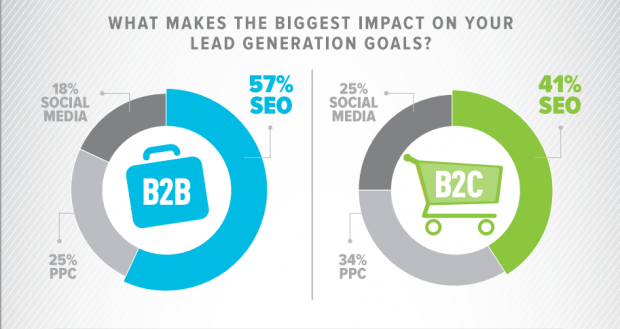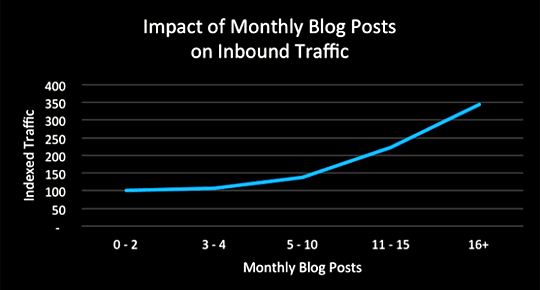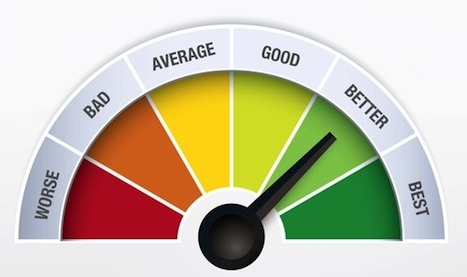5 SEO lead generation tips to grow your business

Lead generation and SEO are two of the most crucial aspects of developing an efficient marketing strategy for your company’s growth.
Lead generation entails building interest in your company so that qualified prospects may be attracted, nurtured, and eventually converted into customers and brand advocates. Without leads, no company can thrive.
Despite the fact that lead generation and SEO are two distinct tactics, when you combine the two, you will be able to propel your company to new heights.
We’ll look at seven SEO lead creation strategies in this post to help you develop your business.
Why is SEO so vital for your company?
Search engine optimization (SEO) is the process of improving a webpage’s ranking in the search engine results pages (SERPs) (search engine results pages). The higher your web pages rank, the more likely Google and other search engines will show your pages to visitors who are searching for related terms.
SEO is a broad phrase that refers to anything you do to improve the visibility of your website and its content on the internet. This encompasses anything from keyword embedding on your website to link development and social media marketing, among other things.
- SEO is important for your business since it increases your online presence. It increases organic traffic to your website, resulting in more leads and customers, and eventually, more revenue and growth for your company.
- SEO also enables your website to stand out from your competition online. You’ll be able to rank highly, get found by your target audience, and increase your lead generation by using the right SEO methods.
- When done effectively, SEO may provide you a steady stream of quality visitors from search engines on a regular basis. This is where you’ll be able to profit from website traffic if you know how to turn it into potential clients. If you’re a local business, for example, adding a call now button to your website can help you increase call volume to your physical location(s), allowing you to build new client connections on a regular basis.
How does SEO impact lead generation?
SEO and lead creation are two distinct tactics, as previously stated. SEO focuses on altering and updating various components of your site in order to improve its search engine rankings and increase online traffic.
Lead generation, on the other hand, is concerned with boosting your company’s number of clients and prospects.
The link between them is based on the influence of SEO on lead creation.
By generating awareness for the brand through organic visitors to the website, SEO may supplement a company’s lead generation activities. Your target clients will be able to locate you and learn more about your company’s solutions if your website appears frequently on Google’s first page.
For producing leads, SEO, according to the majority of marketers online, is superior than other marketing tactics, including PPC.

Source
There are a variety of strategies to leverage SEO to increase your lead generating efforts, including:
- Examining your webpage
- Performing keyword research
- Existing on-page content is being updated.
- Comparing your performance to that of your competitors
- Developing a long-term content marketing plan
- Putting together a backlink strategy
Excellent SEO benefits both search engines and website visitors. It enables you to optimise your website for search engines without hurting your readers’ experience. By doing so, you guarantee that your website is set up to generate as many organic leads as possible.
5 SEO tips to boost lead generation
Let’s take a look at seven SEO methods to promote lead generation now that you know SEO is one of the most efficient ways to build your customer base, generate revenue, and expand your business. If you want to learn more, enrol in an SEO course.
1. Create a blog with SEO-friendly material.
Building an active blog with optimised blog entries is one of the finest methods to leverage SEO to obtain more leads. A blog incorporates all of the aspects required for effective website SEO. You’re simply supplying fresh material, keywords, backlinking, photos, social media interaction, and so on by updating stuff on a frequent basis.
Here are some of the fundamentals of optimising your blog for SEO:
Use keywords: Conduct keyword research to identify the most significant terms in your sector, and then incorporate them into your headline and blog content. Just remember to make it natural and avoid keyword stuffing, since this may result in Google penalties.
Publish on a regular basis: To get the most out of your SEO efforts, you must produce material on a regular basis. The graph below shows that the more regularly you publish to your blog, the better your results will be.

Source
Use subheadings: Using H2, H3, and H4 headers enhances your user experience by making your content scannable. It will also make it easier for Google to grasp what your content is about.
Add links: You must connect to other relevant information on your website every time you publish a blog post. This enhances usability, increases page visits, and aids in the distribution of link juice.
Format material: Your information should not only be valuable, but it should also be simple to absorb and digest for your audience. Make your material simpler to read and more interesting by following standard formatting techniques.
Remember that no matter what type of blog you run, you should always follow these recommended practises.
If you’ve created a lifestyle blog, for example, you should still use all of these SEO best practises to try to improve traffic, which will ultimately lead to more leads into your ecosystem.
Considering SEO from the beginning of your blog’s debut will result in steady development and company expansion potential.
2. Boost the speed of your website
Search engine rankings are influenced by website speed. Google’s principal objective is to deliver the greatest possible experience for its visitors, and the speed with which your website loads is a major aspect in achieving that goal.
Google will give your website a higher ranking if it replies to searches quickly.

Here are a few simple techniques to speed up your website:
- Make use of a reputable web hosting service.
- Make your site mobile-friendly.
- Use a plug-in like TinyPNG to optimise your images.
- Use a plugin like WP Fastest Cache to speed up your scripts.
- Scripts and plugins that aren’t needed should be removed.
- Remove spam comments and fix broken links.
- Using a plugin like WP-Optimize, clean up your database.
- Use WP Total Cache (or MaxCDN if you’re not using WordPress) to enable caching.
To check the speed of your website, use a programme like Pingdom. Once you’ve figured out how your site is functioning, you can start making changes based on the tool’s recommendations.
3. Conduct keyword research

The importance of keyword research in SEO is undeniable. It entails determining the phrases that people use to seek for information, products, or services via search engines. When done correctly, keyword research may serve as a firm basis for all of your internet marketing activities and guide all of your decisions.
There are a variety of keyword research tools available to help you uncover relevant keywords that lead to your website in order to enhance traffic, sales, and marketing ROI.
4. Start link building
The act of obtaining links from other websites to your own is known as link building. Users may simply move between online sites with the use of links. They also make it easier for search engines to crawl between specific pages on your site and whole domains on the internet.
Link building is a vital part of your entire SEO lead generation plan, but if you want to see great returns from your efforts, you must do it correctly.
For example, you should never purchase links and should only connect to high-quality sources that will assist your domain’s rating. Manually approaching bloggers for guest posts and link placements is still a highly legitimate method of link building.

Make a list of persons you want to contact. In the body of the email, come up with a subject line that performs well in your niche and describe the benefits of accepting your offer.
5. Maintain active social media accounts
You’re not alone if you’re not sure how social media may help with SEO. Many marketers are perplexed as to how social media affects SEO.
Although Google claims that social signals aren’t one of its ranking components, Search Engine Journal research demonstrates that social media can help your website rank higher.
The research reveals a strong link between ranking position and social signals, with the top-ranked pages on Google exhibiting substantially more social signals than those that don’t.

It might be claimed that social media has an indirect relationship with SEO since the more social media followers you have, the more likely you are to attract linkers.
If you’re a writer who utilises social media to generate more visitors/leads to your site, for example, the actual visits to the site aren’t as crucial to SEO as the potential links you’ll get from people who notice your material and link to you from OTHER websites.
As a result, keep your social media channels updated to help increase your SEO lead creation operations.
Conclusion
Each of these seven SEO lead generating methods can help you enjoy steady development in your business, from developing an SEO-optimized blog to keeping active social media channels.
Contact us : +91-8860829261, techbitestudio@gmail.com

